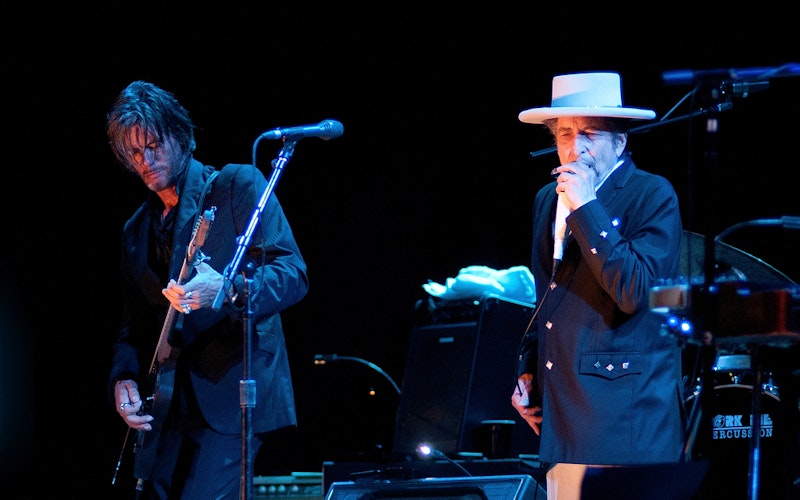
Music
The Downside of Dylan Winning the Nobel Prize
The 2016 Nobel Prize in literature, an honor that usually rewards obscure authors with much-needed recognition and cash, has been given to one of the most famous pop artists in the world: Bob Dylan. Though Dylan has written both an acclaimed memoir and a collection of poems, the Swedish Academy specified that the Nobel was for “creating new poetic expressions within the great American song tradition.” A Nobel Prize in literature to a popular folk singer? What’s going on here?
I find myself conflicted over this award. Is the academy performing some sort of art surgery, wresting Dylan’s lyrics from the context of both their musical settings and the unique voice that delivers them? As a fan of thoughtful music in general and Dylan’s genius in particular, I’m thrilled to see so many people contemplating the brilliance and influence of his work as a result of this honor. It’s hard, however, not to feel that something crucial is being missed when we reduce Dylan to a lyricist.
Bob Dylan is a folk artist in the best and truest sense of that word. Few popular artists have so successfully synthesized diverse influences into personally authentic new work. He builds musical houses—some grand and sprawling, some creaky and haunted—and then inhabits those houses with characters, stories, confessions, observations, and fables. It is the authenticity of those structures that has allowed him to craft deeply spiritual and often surprisingly Biblical art in way that is accessible to all audiences. Dylan’s words don’t simply ride alongside the music; they become a part of it. In this way, his music is far more incarnational than it is propositional. Isolating his lyrics as written poetry misses the point and furthers the attitude that the words are the important part of songwriting.
Dylan’s words don’t simply ride alongside the music; they become a part of it.
Popular Christian music, for example, has often been built around highly propositional lyrics wrapped inside whatever music would most effectively deliver them to listeners who already agree with them. Too often the music—even the vocals—have felt like the cheese you wrap around a dog’s pill. These types of songs generate enthusiasm from listeners predisposed to agree with them, even as they often seem irrelevant to audiences at large. Dylan has always demonstrated a more holistic way of crafting songs, in which the musical accompaniment—and even the broken voice at their center—are inexorably connected to and mutually dependent upon the lyrics. He is certainly one of the best lyricists in the history of popular music, but to celebrate his words in isolation is to miss out on the incarnational aspect of his music.
Are Dylan’s lyrics literature? Reading is an interactive process between the reader and the author. It takes time and effort. Pop music, especially in the modern context, is a mostly passive pursuit. People tend to do the vast majority of their music consumption while driving, playing video games, posting on Facebook, or working out. It’s an add-on. The act of simply sitting and listening seems positively retro in this digital age. That process was, however, and still is, the way in which Dylan’s art works best. He has, for over half a century, used a disposable medium to deliver a transcendent impact. That is his subversive gift. Calling his lyrics “literature” is a flattering concept, but my worry is that—like those praise songs that are all about the words—such an honor takes away from the holistic beauty of the songs themselves.
Topics: Music, Culture At Large, Arts & Leisure